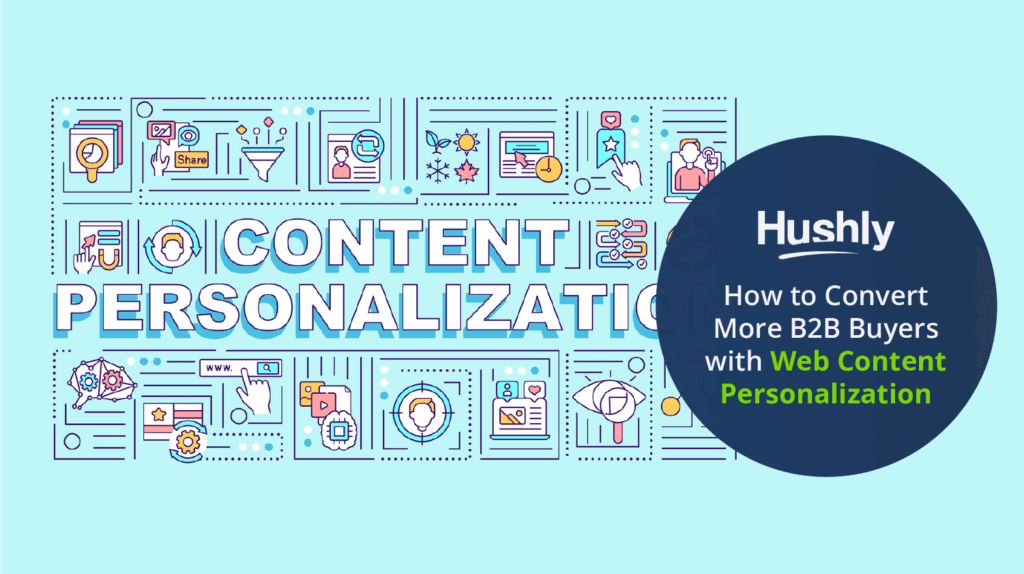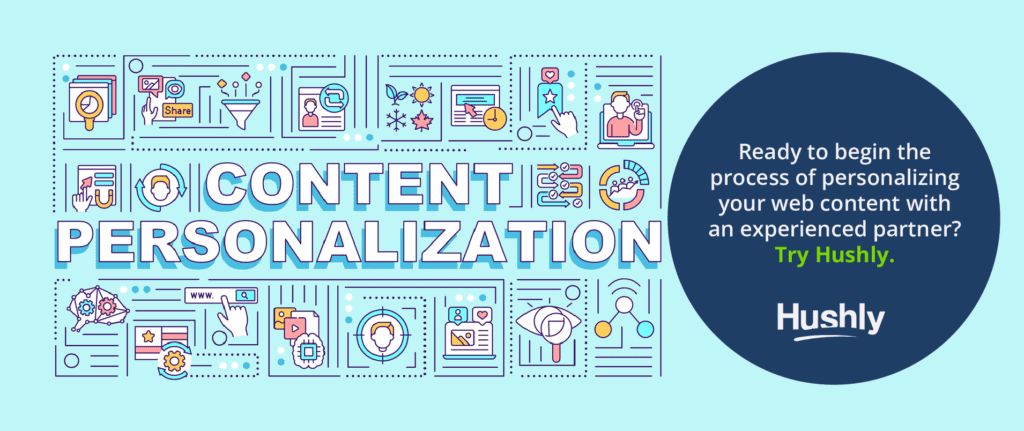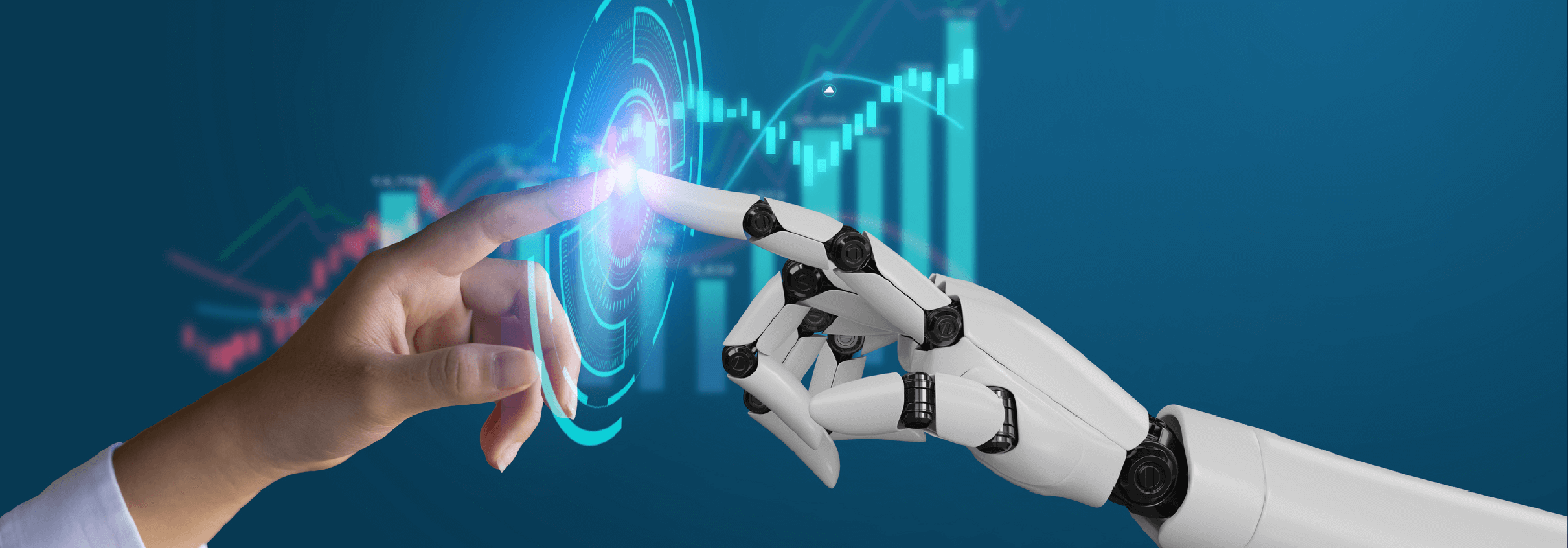It’s not getting any easier for marketers without web content personalization partners to generate high-quality content that resonates with users.
Innovations like adaptive content hubs, content algorithms, and modern SEO practices mean that buyers have an easy time finding information on just about any subject they want to research. This is great for the average buyer, but an overabundance of information can lead to decision paralysis. It also makes it far more likely that below-par, non-personalized content will be ignored in favor of higher-quality options.
This combination of factors creates an environment where only the sharpest content can cut through the information overload. This means well-conceived and executed content, personalized for the buyers who matter most to your company’s growth.
Optimizing your web content personalization is the theme of today’s guide. We’ll explain the concept of personalized web content, why you should care about it, and suggest a few ways you can begin the process of personalizing web content today.

What is Web Content Personalization?
Web content personalization is a marketing strategy that involves tailoring web content to individual buyers. This is generally done by gathering information about the user, starting with things like how that user found the content, and slightly altering your website content to closely match their unique perspective.
In other words, web content personalization is the natural next step after recognizing that B2B buyers, like B2C customers, are individuals with unique concerns, needs, and buy thresholds. B2B buyers are also more likely to perform more research and demand more when it comes to features, availability, and customer service.
Non-personalized content is the way to deliver value to any customer who finds their way onto your website. Personalized content is a step above this, as it tries to deliver unique value to specific customers that your company hopes to form relationships with.
How Do I Personalize My Web Content?
Web personalization tools like Hushly are the best way to personalize web content.
However, if you prefer to do it alone and are interested in some of the best website personalization examples, we recommend starting with these steps.
Create Personas
The process of creating a website personalization strategy should begin with finding the targets of your personalization.
One of the most redeeming aspects of B2B website personalization is the fact that you can invest relatively little time and resources and potentially see a massive return.
You can begin by identifying several promising B2B candidate buyers and creating buyer personas for them. Use these personas to develop a unique strategy for engaging with that buyer. You should focus on details like the company’s niche, its pain points and growth engines, and ways your company can add value to its operation and aid in its growth.
Once you know what message you’re going with, you can start the process of customizing web content based on that campaign and targeting your ideal buyers.
Create Personalized Websites
A personalized website should speak directly to your target audience. This includes major details such as page names, text, and recommended content. These factors should be individualized, addressing the company or even the buyer directly. Letting the company know you’re aware of its place in the ecosystem and may already understand its issue can build trust.
Hushly’s automated web content platform creates dynamic experiences that can be personalized using any element of a webpage, including self-updating text, banners, calls to action, and more.
Use Self-Nurturing Landing Pages
Buyers should find content and educational materials with ease, directly from their personalized landing page. B2B buyers expect to browse your content at their own pace and in a way that makes sense to them. This is only possible when you combine powerful AI analytics with valuable buyer intent data to create truly personalized experiences.
Create an Adaptive Content Hub
Content hubs are places where users can find all of your content at once. They are important because users expect to find your content easily and on their schedule.
An adaptive content hub is the next generation of content hubs. It’s where developers use algorithms to optimize what content is displayed depending on the visitor. This makes it possible to recommend only the most relevant, conversion-driving content your website has to offer to the right buyer at the right time.
Gather Data and Refine
Gathering data is important every step of the way. The more you know about your customer’s behavior, the more you can predict their needs and provide valuable services.
You’ll want to know details like:
- Content performance
- Content engagement metrics
- Conversion analytics
- Trends and campaign performance
Hushly’s automated web platform is the best way to perfect your content strategy with data-driven analytics and modern AI solutions.
Why is Web Content Personalization Important?
As advancements in AI content generation, marketing, and distribution continue to roll out year after year, the face of content marketing is likely to change.
Buyers are savvy researchers with limited amounts of time. Why should they spend that time searching through a non-adaptive content hub, or hope they’ll skim the right headline if they scroll far enough through a blog page?
Just like in the past, it was once enough to simply create content and wait for buyers to find it. The day has come when it’s no longer enough to create content and hope that buyers don’t expect it to be accessible, valuable, and personalized.
Modern Website Personalization is Critical for Go-to-Market Strategies
Modern go-to-market strategies need to be flexible, durable, and constantly open to refinement. Website personalization is just the latest in a long list of things that go-to-market strategies require to perform well.
If you’re planning on launching a product, you’ve probably already identified an ideal buyer for that product before you began developing it. Why spend the time and effort developing a product to help a business grow, only to neglect to personalize their marketing content when you decide on your go-to-market strategy?
The Benefits of Web Content Personalization
The benefits of web content personalization include:
- Better content engagement
- Higher conversions
- Better customer satisfaction
- More repeat customers compared to non-personalized content.
A personalized content hub, with smart AI analytics to optimize the feed, will recommend the most relevant content to your most valuable buyers. This is because these buyers are three times more likely to buy more and regret less when information about a product or service is readily available.
There’s also the fact that 43% of B2B customers prefer to not interact with a sales rep at all. This means that, in many cases, the only opportunity you’ll have to educate and convert a customer is through your content marketing.
Personalization is Easy with Hushly
Personalization is simply one more step on the road to perfecting your content strategy.
If you feel you’d rather have an experienced web personalization specialist take on the stress of web content personalization for you, Hushly is ready to partner with you and grow together.
Ready to begin the process of personalizing your web content with an experienced partner? Try Hushly.




